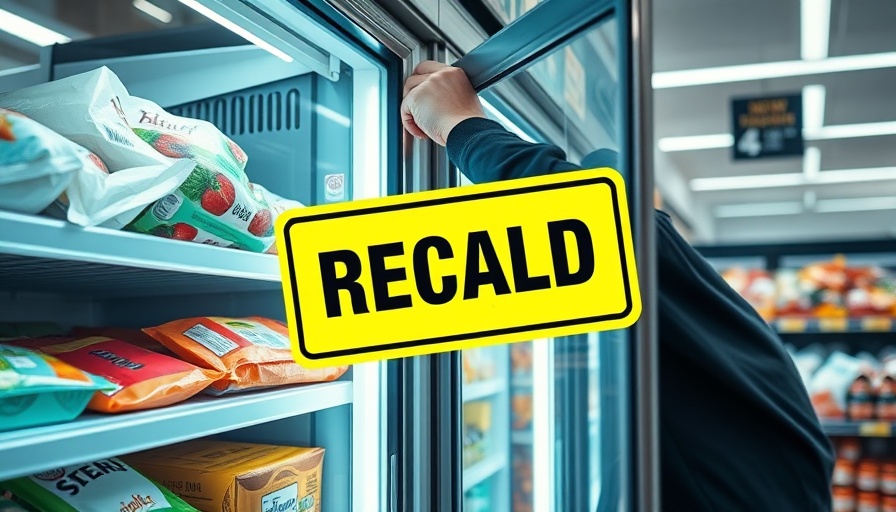
Understanding Medicare: A Comprehensive Overview
Medicare can feel overwhelmingly complex, especially with its various parts and plans. Understanding each component can make a significant difference in securing the healthcare you need. In the enlightening video titled Medicare Part A, Part B, Part C, Part D – What’s the Difference?, many aspects of Medicare are laid out, revealing crucial insights that warrant further exploration.
In Medicare Part A, Part B, Part C, Part D – What’s the Difference?, the discussion dives into the complexities of Medicare options, exploring key insights that sparked deeper analysis on our end.
Breaking Down Medicare Part A and B
Medicare has four main parts, starting with Part A, which covers inpatient hospital stays and related expenses such as room and board. While many people may overlook the high deductible—around $1,600 per admission—it's essential to recognize that most will access it through a supplementary plan or Medicare Advantage, which eases the financial burden significantly.
On the other hand, Medicare Part B focuses on outpatient services, such as doctor visits and preventive care, and has a considerably lower annual deductible of $257. Combined, these two parts form the foundation of Original Medicare. Choosing to understand how these components interact can save beneficiaries both money and frustration down the road.
Medicare Part C: The Controversial Choice
Medicare Part C, known as Medicare Advantage, creatively blurs the line by allowing private insurance companies to provide plans that often claim to offer additional benefits over traditional Medicare. However, it's essential to recognize that enrolling in Medicare Advantage actually shifts you away from Original Medicare to a private plan that can potentially complicate your healthcare. Many beneficiaries face more restrictions, such as network limitations and pre-authorization requirements, which might not align with their healthcare needs.
Understanding these nuances and the trade-offs involved in selecting Medicare Advantage over Original Medicare is key to making beneficial decisions. While some find cost savings in Advantage plans, they may face higher expenses in the long run if they require specialized care.
Decoding Medicare Part D
Medicare Part D, designed for prescription drug coverage, offers some relief for those grappling with medication costs. Choosing a Part D plan can be as challenging as picking a primary healthcare provider, especially since individuals must evaluate their current medications and frequent pharmacies. Thankfully, the Medicare drug plan finder is a valuable tool for helping beneficiaries tailor their plans to their specific needs.
Part D plans can be switched annually, allowing flexibility as your medication needs evolve. Yet, for many, alternative programs—like GoodRx or community pharmacy discount plans—may provide more financially accessible options. Navigating these choices with careful consideration can lead to significant savings.
Medicare Supplement Plans: Adding Layers of Support
While Original Medicare provides substantial coverage, it’s often wise to explore Medicare Supplement plans, commonly known as Medigap. These plans can fill the gaps that the original coverage may leave open, reducing out-of-pocket costs significantly. Popular options like Plan G or Plan N can provide extensive care and peace of mind, eliminating the financial surprises that often accompany healthcare utilization.
In tandem with Original Medicare, these supplement plans can lead to lower out-of-pocket expenses, making healthcare more predictable while promoting a healthier lifestyle.
Practical Insights for Medicare Enrollment
As I strive to help others gain a better understanding of Medicare, it’s important to advocate for making informed decisions. With our growing aging population, exploring and comparing different plans is paramount to ensuring optimal care. It can be beneficial to work with professionals who specialize in Medicare enrollment to navigate through various choices and simplify the process.
Ultimately, engaging proactively with Medicare and its offerings can lead to lifelong benefits, ensuring that your health needs receive priority attention without financial anxiety. As you step into enrolling in Medicare, remember that understanding the differences between Parts A, B, C, D, and Supplement plans is crucial in making the right decisions for you and your health.
Empower Yourself in Health Care Choices
Knowledge is power, especially when it comes to healthcare decisions that can significantly impact your quality of life. If you’re unsure about how to navigate the Medicare landscape, seek assistance from experts who can walk you through your options. Don't hesitate to reach out for support and guidance—after all, a well-informed choice today sets the foundation for a healthier tomorrow.
 Add Row
Add Row  Add
Add 




Write A Comment